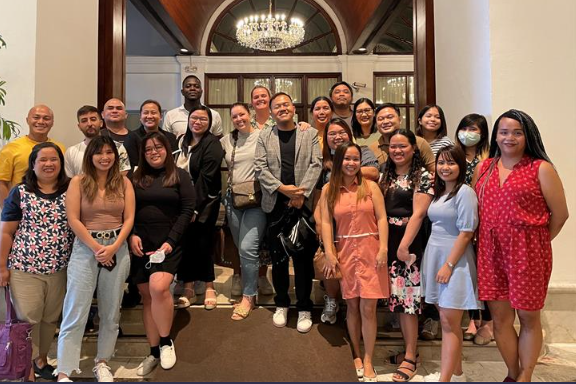Building a dream team: How HR teams can shape an organisation

The phrase, “teamwork makes the dream work” is one that has resonated through the ages, and still holds true to this day. When it comes to effective communication and change within any organisation, a good team is one that excels in these areas. This is even more imperative when it comes to creating a good HR team, where their whole purpose and job description revolves around recruitment and managing top talent within any organisation.
One such example happens to be the HR team from Orica, a multinational corporation that is one of the world’s largest providers of commercial explosives and blasting systems to the mining, quarrying, as well oil and gas sectors. Their work at Orica is one that exemplifies the meaning of teamwork, which led to the company receiving the HR Team of the Year sponsored by Sanderson-Ikas at the HR Tech Fest Awards 2023.
Calling the award a testament to the team’s hard work and dedication and a way of increasing the company’s visibility to attract top talent to join the company, Mhar Anthony Villaester, Manager of People Services Global Hub, Orica, told HRM Magazine Asia, “Winning this award serves a powerful motivator for each member of the People Services, inspiring each of us to continue striving for excellence and making a positive impact to our employees and stakeholders.”
To Villaester, creating a great team boils down to a service excellence framework that boils down to four key words: Purpose, People, Performance, and Process. Purpose, for instance, defines what the team is and the group’s work to facilitate efficient and cost-effective HR services; while People revolves around the value and respect that the team should have for each other, with open communication based on honesty, integrity, trust, and respect. The team’s Performance key phrase is one where any successful work progress is backed up by quantifiable data, such as through ticket resolution rates, and finally Process, which focuses on improving processes and always optimising every aspect of the business to meet the needs and standards of the work ethic. These four P’s shapes the environment that Orica’s HR team works in because they have absolute clarity in what to do and how to succeed together. “We remain true to our main purpose of providing high-calibre services to our employees while not losing sight of ensuring we establish a culture based on diversity, equity, and inclusion,” said Villaester.
To make sure all four P’s are in the forefront of shaping the culture and work processes at Orica, constant communication is always at hand between the HR team and the rest of the employees at Orica. Villaester explained that the company’s communication stance to their employees and stakeholders has always been a precise one, with clear explanation of the issue at hand, and how they are trying to solve it, with managed expectations of what they can expect when implementing the changes. This means also providing employees with a safe space to express their opinions through various methods, ensuring that the team members are empowered to share their thoughts in a way that is most comfortable for them, such as monthly business reviews and attending smaller departmental meetings instead of bigger ones where they may feel less comfortable presenting their ideas.
READ MORE: Breaking barriers and fostering inclusivity for success
What else can organisations do to cultivate their HR teams? To Villaester, it is a matter of developing a workplace environment that emphasises fostering open communication and dialogue, encouraging team members within the organisation to actively participate and share their views to work through solutions. Organisations, in turn, should give opportunities to employees to challenge themselves in any situation, while still being creative. But this will only work when the organisation takes care to hire prospective talent in the first place. “The organisation should focus on the philosophy of culture-add and mindful hiring,” concluded Villaester. “Put simply, prioritise people who have strong value alignment over those who have relevant work experience.”



